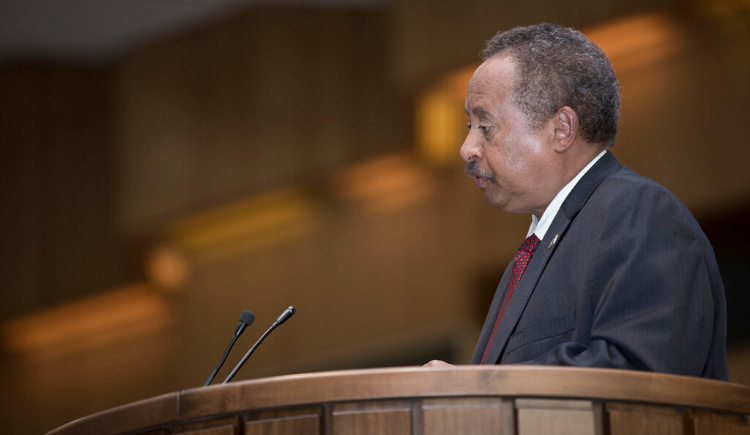Sudan’s prime minister speaks he survived a “terror attack” after a blast and firing targeted his motorcade in the capital of Khartoum.
Abdalla Hamdok, the Sudan’s prime minister and a long time economist, tweeted he is “safe and in good condition” in the attack. Sudanese state T.V. stated Hamdok was going to his office when the attack happened. Hamdok also tweeted a picture of himself smiling and sat at a large desk.
The attack highlighted the brittleness of Sudan’s change to civilian rule. Nearly a year after pro-democracy campaigners forced the military to eliminate despotic President Omar al-Bashir from power and change him with a co-operative military-civilian administration assured to hold elections in three years.
Hamdok, in his brief declaration on Twitter, stated, “rest guaranteed that today’s incident will not stand in the way of our change. Rather it is a further push to the wheel of transformation in Sudan.”
A declaration from the prime minister’s office stated the attackers used explosives and guns. A security officer gets slight injuries. Faisal Saleh said the convoy hit near the Kober Bridge. Footage despatched online displayed two white, Japanese-made SUVs usually used by Sudan’s top officials parked on the street, injured with its windows broken. Another vehicle got severely spoiled in the blast. The Forces for the Declaration of Freedom and Change requested the people to take to the streets to “display our unity and solidity, and secure the provisional authority.”
Last summer, Youth activists faced seizure and pressure and are still reeling from a fierce crackdown by security forces. It broke up their sit-in outside the military’s H.Q. and murdered dozens. After months of discussions, the army and the pro-democracy undertaking reached a power-sharing contract in August. On this occasion, Hamdouk took charge of the office. The agreement was also well-known as a co-operative military-civilian, 11-member independent council to rule Sudan for the next three years.
The U.S. Embassy in Sudan tweeted:
“We continue to help Sudan’s civilian ran the provisional government and stand in unity with the Sudanese people.”
Monday’s blast happens less than two months after an armed rebellion from within Sudan’s security forces close the capital’s airport. They also killed two people. In 1989, al-Bashir came to control in an Islamist-backed military coup. He also forced a severe clarification of faith on its citizens, warning personal freedoms. Sudan’s provisional establishments changed in February that they decided to overpower al-Bashir to the International Criminal Court sideways with other former officials liked by the ICC.
Read Brazil is a Dictatorship or Democracy ?

